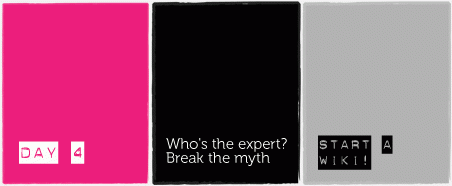
Across the world, women are under-represented in the news. Female experts are rarely interviewed, there are fewer female reporters, and women are often portrayed in stereotypical ways. Women are more likely to have their age and family status reported than men, and it's far more likely that their appearance will be commented on.
This leads to the perception that women are only fit to comment as bystanders and observers, where news is something that happens to women, not something that is made by women. Women also often appear in stories about violence, locating them as victims in society instead of opinion leaders and decision-makers.
The reason often given by members of the media for not featuring women experts is because there aren't any who knows the topic at hand. In reality, women are active participants in all aspect of social, economic, political and cultural life, and there are plenty of women with knowledge around. The reason they are not included is because of a preconceived idea that men are experts in those area. For example, in science and technology, war or medicine.
Break the myth! Challenge the gender stereotypes in areas of expertise. Shift the perception and shift the news!
1. Make a list
- Check out your favourite newspaper and write down the different sections of news
2. Name the "experts"
- Under each section, look for women knowledgeable in the areas. Challenge the stereotype that women are only experts in certain areas of life, like fashion, care work or family (you can also compile a list of male experts in those areas!).
- If you're not sure where to find them, look at websites or talk to people from your nearest university. Talk to women's rights and human rights organisations and female politicians. Ask your friends or the next taxi driver you come across. Find experts in unexpected spaces, like blogs or tweets.
- Challenge the idea of "expertise" and include "ordinary" people who have immense knowledge based on their lives and experience.
3. Collaborate & grow
- Get together with a few friends and turn it into a collective effort. Start a wiki!
- A wiki is a website that allows many people to write, edit and publish together. It has been a great platform to enable lots of people to build knowledge and generate resources. One popular example is Wikipedia. Other examples include collaborative note-taking at events, brainstorming a meeting agenda with people from around the world, or your book group's list of favorite feminist books.
- There are several free wiki services available online, like Wikia and Wikispaces. You can also download and install wikis programmes like MediaWiki if you have your own server space and domain.
- Try out and experiment with what's available, and pick on that you feel most comfortable with (or had most fun trying!)
- Create your wiki and invite others to contribute to your encyclopedia of women experts.
4. Inform
- Share your wiki with reporters in your local newspaper, radio or TV news to try and help them use more women sources in their stories.
- Call up a radio station, write to the editors, send them a tweet or pay them a visit.
- You can even suggest to them to turn this collective effort as a news story! This will help raise further awareness on the need to shift gender stereotypes and limitations in the media.
Take back the tech! Disrupt stereotypes & the myth of "expertise"! And have fun while you're at it :)
- Log in to post comments
